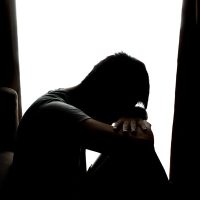Is There Anybody Liable When Someone Commits Suicide? There May Be

Suicide is a devastating event to happen to a family. And while you may be trying to cope with the loss, the grief, and the seemingly senseless nature of the death, you also may be wondering if anybody may have been responsible.
Yes, suicide is accomplished by the person who takes his or her own life. On the surface, it may seem like there is no liability, no third person who may have been responsible for the suicide. But that is not always the case. In certain, specified circumstances, families of suicide victims may in fact have legal recourse.
In Custody
One area where someone can be liable for suicide, is in custodial situations. This is where a third party undertakes the obligation to watch, monitor, supervise, or care for, the victim. Examples may be prisons, nursing homes, or schools.
Although these kinds of businesses don’t have an obligation to investigate every student or resident to see of they are a suicide risk, they do have an obligation to act upon reasonable clues, information or suspicions, that someone may be a suicide risk. So, a school that hears a comment from a student, or gets a “tip” from someone else, or which may have information from a medical provider that a student is a suicide risk, would have a heightened obligation to prevent the person from taking his or her own life.
That obligation may vary depending on the nature of the custodial relationship. For example, a high school, which has greater control over a more vulnerable student population, would have a greater potential liability for a student’s suicide than, say, a college or university would.
Doctors and Medical Professionals
One place someone may look to for liability following a suicide, would be their own doctor. Whether a doctor is liable for a patient’s suicide depends on the doctor, the specialty, and what the doctor knew or didn’t know.
Quite clearly, a psychiatrist or mental health professional would have a heightened obligation to ensure that patients do not kill themselves—these are professionals trained to recognize the signs and symptoms of suicide, and who are in a special position to evaluate the seriousness of what patients say, and to act on those threats that the medical professionals consider to be serious.
Compare this to, say, an orthopedist. An orthopedist may have an obligation to report blatantly obvious signs of suicide expressed by a patient, or to act on such threats, but that orthopedist may not have the medical training to recognize the more subtle signs and symptoms of suicide.
A doctor of any specialty may have the obligation to avoid prescribing medications to people with prior existing metal health conditions, where those medicines may exacerbate those conditions to the point of suicide. That’s why any doctor has an obligation to take a general inventory of mental health, before prescribing these kinds of medicines.
Contact our Rhode Island personal injury lawyers at Robert E. Craven & Associates at 401-453-2700 for help if you have been a victim of malpractice, or you believe someone may be liable for a suicide of someone close to you.
Sources:
alu.edu/alublog/what-is-physicians-liability-when-a-patient-commits-suicide/
ncbi.nlm.nih.gov/pmc/articles/PMC7011301/

